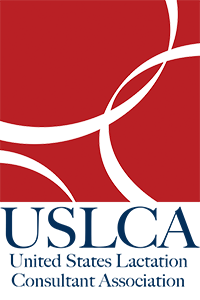Title V Block Grant Comment Opportunity
Enacted in 1935 as a part of the Social Security Act, the Title V Maternal and Child Health Program is the Nation’s oldest Federal-State partnership. State Maternal and Child Health agencies (which are usually located within a State health department) apply for and receive a funding grant each year. In addition to the submission of a yearly application and annual report, State Title V programs are also required to conduct a State-wide, comprehensive Needs Assessment every five years. States and jurisdictions use their Title V funds to design and implement a wide range of Maternal and Child Health and Children with Special Health Care Need activities that address National and State needs. As part of the block grant, states are required to choose 8 of 15 MCHB National Performance Measures, which are linked to specific populations. National Performance Measures 4A & 4B, percent of infants who are ever breastfed, and percent of infants breastfed exclusively through 6 months are often chosen. In addition to the National Performance Measures, states are encouraged to include other objectives related to the overall state priority. In that regard there may be other specific breastfeeding programs or objectives that can be considered to be included in the block grant that directly address the needs of mothers, infants, children and families.
We currently have the opportunity to provide public comments on what we would wish to have included in these state block grants to fulfill the breastfeeding performance measures. The states must submit their applications by July 1 and are working on their block grant applications now. Advocates should contact their state health department and locate the person responsible for the block grant application. Written comments can be sent to this person and some states may also have the opportunity to testify in person. An example of comments for the Title V application in Massachusetts appears below.
Title V comments
- Exclusive or any breastfeeding tends to fall apart rapidly following discharge unless mothers receive timely, appropriate clinical interventions and the level of care that they need, especially if there are problems. Nutrition and immunological benefits through breastfeeding are equitably available to the majority of women making it a healthcare equalizer regardless of population demographics; provided mother has access to the information and support she needs to sustain breastfeeding. Breastfeeding problems are ubiquitous in first time mothers, as on day three 92% of women have more than one concern (Wagner, 2013). These problems peak at day 7 and persist for 60 days postpartum causing a nine-fold increase in weaning (Wagner, 2013). Research has shown that 60% of mothers are not meeting their own breastfeeding goals due to barriers that arise which they do not have adequate information and support to overcome (Odom E.C., 2013).
Recommendation: Improve post-discharge access to the services of International Board Certified Lactation Consultants (IBCLC).
- Urge Medicaid to file a state waiver to reimburse IBCLC services for mothers enrolled in Medicaid or Medicaid managed care plans. Mothers on Medicaid currently lack access to care from the IBCLC who is the health care provider most qualified to provide face-to-face clinical care. Clinical lactation care from IBCLCs is an essential top tier health service and a core public health service that should be readily available as basic “direct reimbursable MCH healthcare”. This is currently not the case in Massachusetts where women have little access to post-discharge breastfeeding support; and if available, may only provided on a self-pay basis which is cost-prohibitive for many. This disparity in care should be addressed.
- Assure that IBCLCs are available in any home visiting program provided through Title V funds
- Utilize IBCLCs in breastfeeding educational and training programs for Title V healthcare providers
- Collaborate with WIC to assure that all mothers in the WIC program have access to an IBCLC if needed
- Hospital support of breastfeeding is crucial to get breastfeeding off to a good start.Exclusive breastfeeding rates in many Massachusetts birthing hospitals are disappointingly low, with many under 50%. According to the CDC, exclusive breastfeeding at 3 months in Massachusetts is 36.8%, a figure that certainly needs to be improved. Many hospitals do not meet the IBCLC staffing recommendations from the US Lactation Consultant Association (USLCA) and Association of Women’s Health, Obstetric and Neonatal Nurses (AWHONN).
Recommendation: Improve in-hospital exclusive breastfeeding rates
- Urge hospitals to meet IBCLC staffing guidelines from USLCA/AWHONN
- Provide adequate breastfeeding training for all maternal/child healthcare providers in hospital systems
- WIC peer counselors should visit their clients while still in the hospital
- Help increase the number of Baby Friendly certified hospitals
- Many women return to work within weeks of giving birth and are challenged to maintain breastfeeding due to inherent difficulties in balancing work and family. Additionally, women may have obstacles in the workplace to pumping breast milk. Childcare facilities may also present barriers to breastfeeding for mothers when they return to work.
- Recommendation: Explore Paid Family Leave policies for Massachusetts
- Recommendation: Support initiatives to promote workplace lactation programs.
- Recommendation: Promote breastfeeding-friendly child care environments, including breastfeeding on site at child care facilities
4 Some mothers may be unable to provide sufficient breastmilk for their infant, especially if the infant is ill or in the neonatal intensive care unit (NICU). Breastmilk has been shown to reduce the incidence of necrotizing enterocolitis (NEC) and other diseases and conditions to which preterm infants are so vulnerable. All infants should have access to their own mother’s milk or donated human milk from a milk bank within the network of the Human Milk Banking Association of North America. Infants in the WIC program do not have access to donated human milk because WIC will not pay for it, even though WIC pays for specialty infant formulas. Many insurance carriers will not pay for banked human milk feedings.
Recommendation: Urge WIC, Medicaid, and private insurers to reimburse for donated banked human milk

